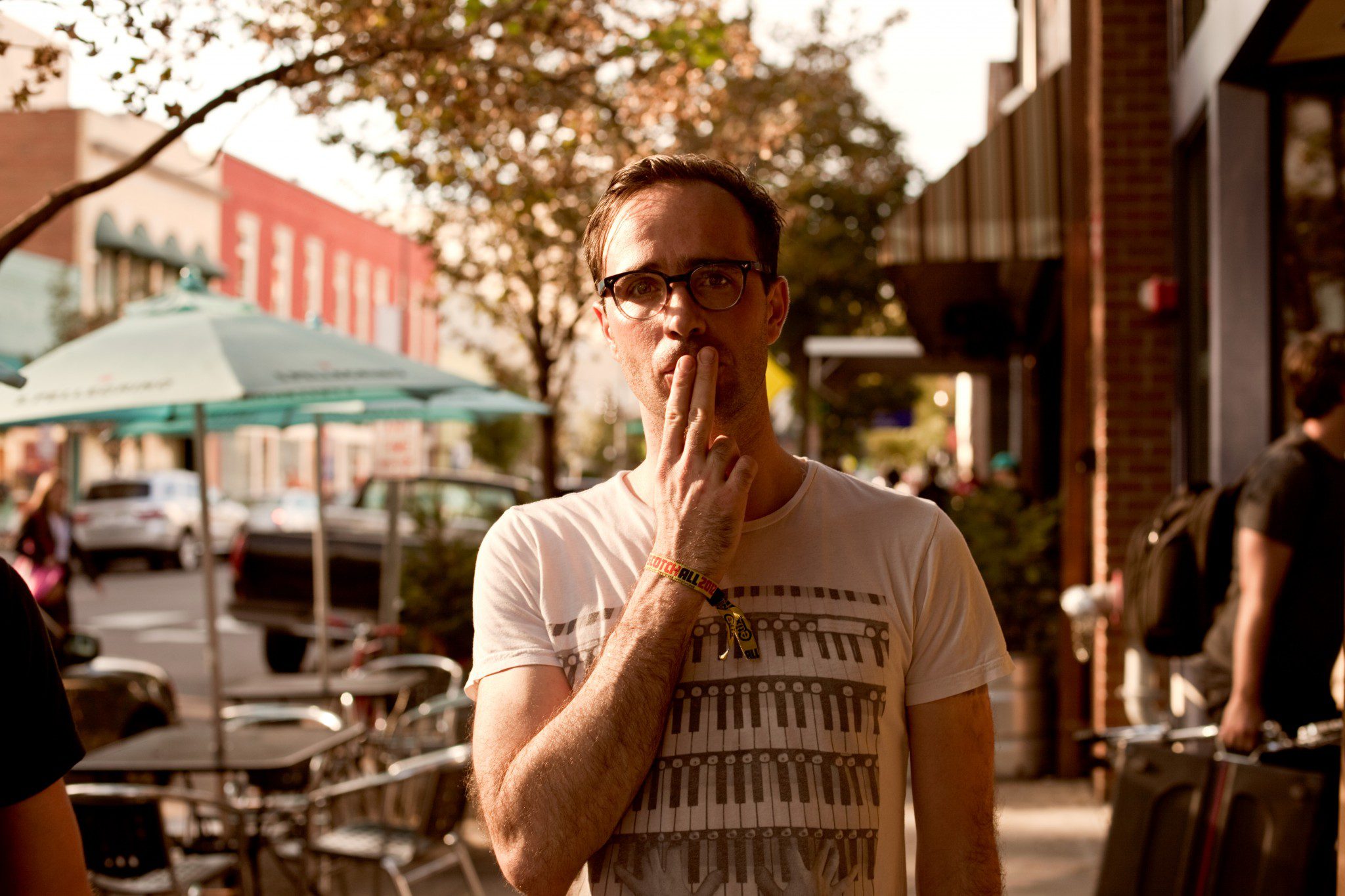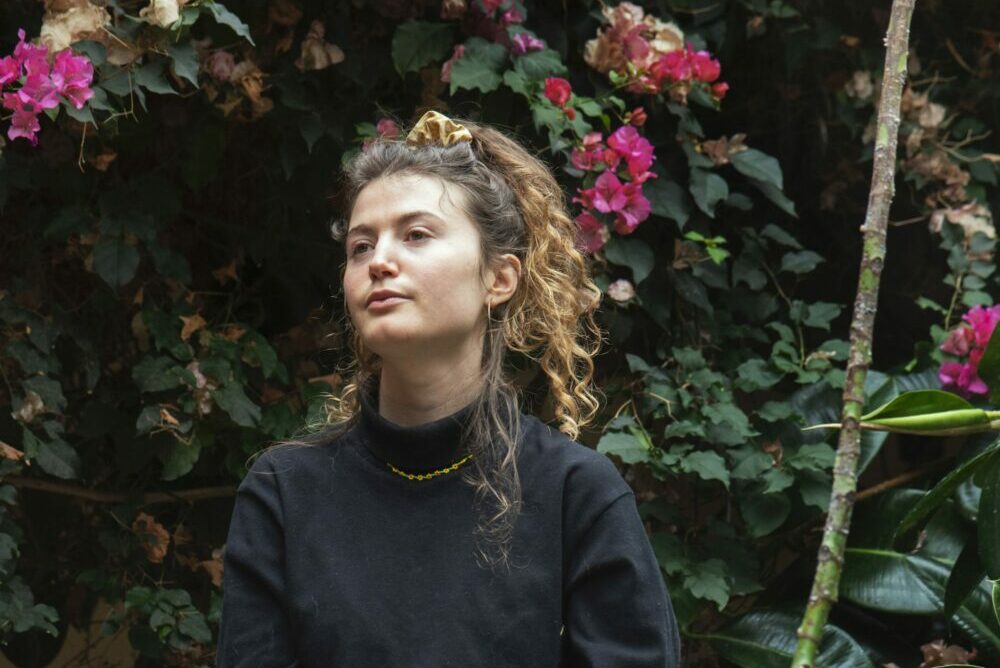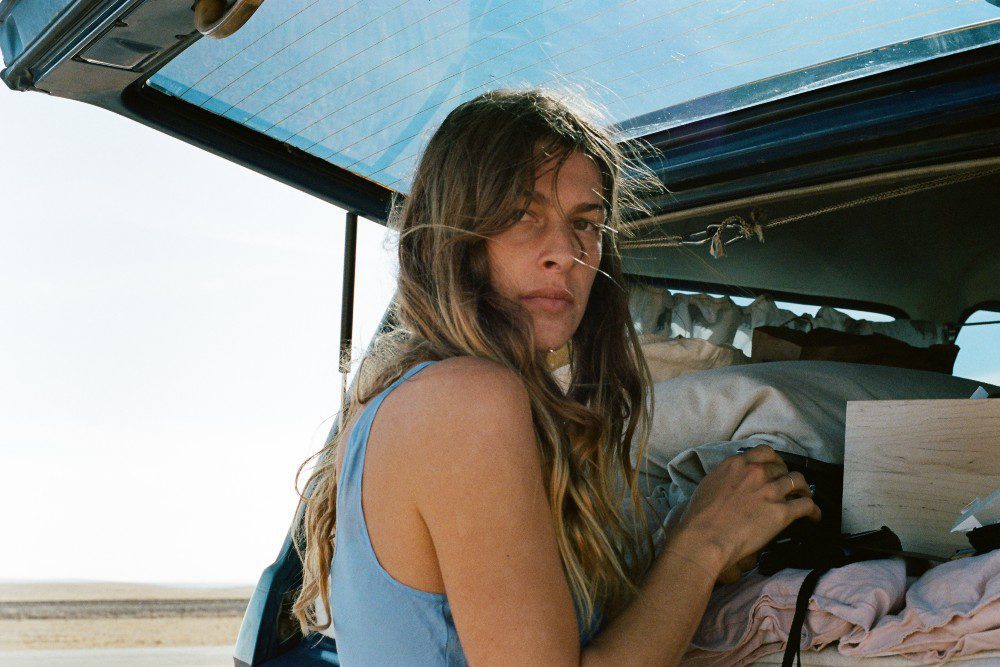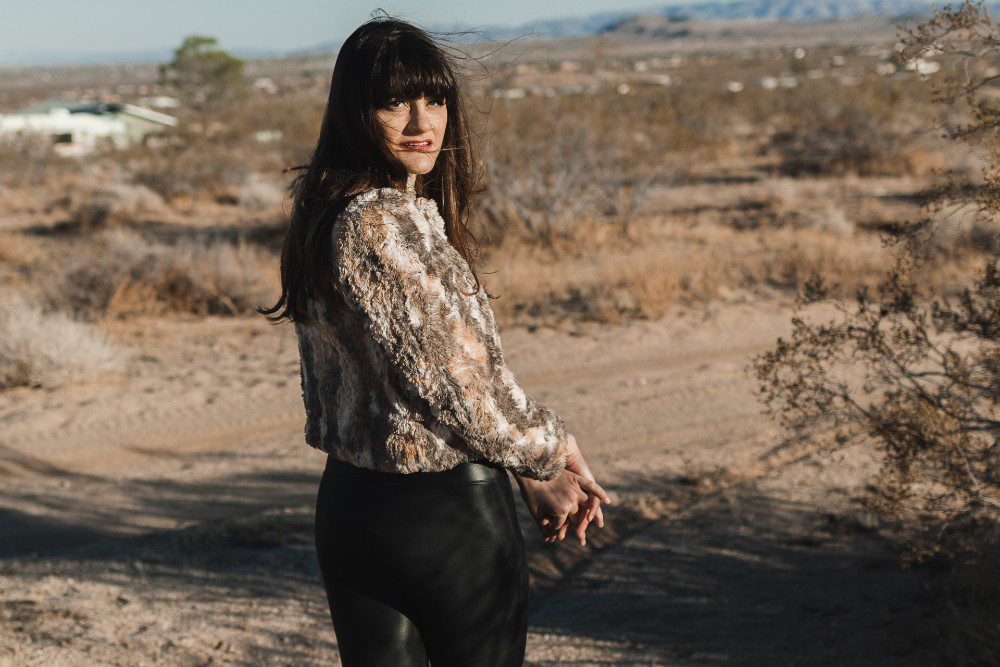
Dan McGee, of Chapel Hill garage rock band Spider Bags, does not have time to grow orchids or build model ships. He works triple duty these days, with a family, a job, and a brand new record, Frozen Letter, due to come out on August 5th via Merge Records. When I called McGee last week, though, he didn’t seem to mind the stress. In fact, being busy suits him: in the early stages of recording Frozen Letter, McGee realized that his wife was pregnant and that he had nine months to get the record finished, but the focus that pressure gave him–and the rest of the group, with Rock Forbes on drums and Greg Levy and Steve Oliva switching off on bass and guitar–led to the Bags’ most cohesive album to date. Here at AudioFemme, we got our paws on “Back With You Again In The World,” the first single off that album, a couple of weeks back, and we were psyched to hear that the Bags haven’t abandoned the sloppy and earnest feistiness that’s always made their music so much fun to listen to. But the musical ESP between the four Spider Bags is no accident, and it’s more apparent than ever on the new record that even when the music is at its noisiest and dirtiest, there’s a complex dialogue going on beneath the surface.
AudioFemme: Congrats on the new record coming out, we’re so excited! What has it been like recording Frozen Letter?
Dan McGee: We started recording in late June-early July last year, with the same engineer I’ve been working with for a while now, Wes Wolfe. I had a lot of ideas for this record and I went into the studio just wanting to see which songs worked together and which didn’t. I wanted to get four or five done. Then, while we were doing them, my wife came to visit with my daughter, and she was smiling a lot, and I was like ‘Oh man, you’re pregnant, aren’t you?’ And she was. So then I realized that I had to think about this record a little bit differently, because I had to get it done in nine months. Instead of doing five songs that weekend we ended up sleeping in the studio and doing eleven. There are eight songs on the record, but we tried three more just to see how they would fit. Actually, this is the closest I’ve ever come to making the record I started out thinking I wanted to make.
AF: So recording it all at once actually had a positive influence on the finished product?
DM: Yeah! It had that external focus, you know? Made me narrow my choices down. Sometimes I think I can get a little too spread out, so it helped that there was a really strict time limit. It was actually the record that I really wanted to make, that I’ve been wanting to make for a while.
AF: That’s fantastic. So what about it makes it the record that you had envisioned?
DM: I had an idea for a cycle of songs. I really wanted to make a record that sounded like a classic rock record, that was mixed like the old AC/DC records, or like Dark Side Of The Moon. I wanted to have songs on the record that would lend themselves to that. There’s only eight songs on the record, you know, and I wanted them to be in kind of a cycle that would have a theme, though that theme wouldn’t be real specific. And I wanted it to sound like a seventies rock record. That was kind of the concept I had going into it, and we got pretty close. I’m stoked.
AF: When you start writing individual songs, are you thinking about the general sound you want to aim for? Do you start with a riff or a chord, or just an aesthetic you want to produce?
DM: Recording songs and writing them is different for me, but most of the time when I’m writing songs I’ll have a pretty good idea–before I actually strum the guitar–what the chorus is, or the melody for the verse. When I start picking through the song on guitar it starts taking on its own life. I don’t ever really go into any specific song with any kind of concept. It’s not the same as a record, where you have to really try to have an idea of what the record is, as a collection. I’ve made a few records now, and some of them are better than others, but I think the better ones are the ones where I’ve had a really clear concept of how the songs relate to each other and how they sound together. I think that’s really important, because the songs that relate to each other are the ones that people identify with, and the other songs fall through the cracks. If I don’t have a concept for a record, I’m not doing all the songs justice. You can’t just put all your best songs on a record, because it just doesn’t work that way. People don’t hear it that way.
AF: Where did you get the idea for the title of the record, Frozen Letter?
DM: It’s from a song on the record called “Coffin Car.” That song starts with an image that I had of walking in the snow and picking up–out of the snow–a big…you know those oversized kids’ magnets that you keep on the fridge? Just the tip of one of those sticking out of the snow, except it’s giant. It’s a pretty ambiguous image. Whenever two words are together, it gives you a feeling, but it could mean anything. It could mean nothing.
AF: What’s the music scene like where you live, in Chapel Hill? Are you a big part of it?
DM: Yeah, I’m definitely a big part of it. When I first moved here eight years ago, it seemed like the musical heyday was kind of in the past–some of the older clubs were closing down, you know, not as many people were involved in the scene–but there’s been an upsurge, and a big part of that has been independent record stores opening again. When I first moved here, Bull City Records in Durham had just opened and that was huge, because it really gave a focal point for musicians and people who like music to hang out. Since then, there’s another record store that’s opened in Chapel Hill called All Day Records. It’s a pretty varied scene. There’s way more rock and roll [fusion_builder_container hundred_percent=”yes” overflow=”visible”][fusion_builder_row][fusion_builder_column type=”1_1″ background_position=”left top” background_color=”” border_size=”” border_color=”” border_style=”solid” spacing=”yes” background_image=”” background_repeat=”no-repeat” padding=”” margin_top=”0px” margin_bottom=”0px” class=”” id=”” animation_type=”” animation_speed=”0.3″ animation_direction=”left” hide_on_mobile=”no” center_content=”no” min_height=”none”][in Chapel Hill] than there was when I first moved here. There’s also a really cool underground noise scene. Synth-driven scene. I feel lucky to live in a town where there’s a really solid scene like that. Even though people play different music and there’s different genres, everybody supports each other, because it’s still pretty small here. There’s not a lot of ‘Oh, I’m not going to that show because it’s a rock and roll show,’ or ‘Oh, I’m not going to that show because it’s a noise show.’ There’s three clubs. You know that if a guy is booking a show at this particular club it’s probably going to be interesting and cool, so you might as well just go.
AF: How did you come to live in Chapel Hill?
DM: I was traveling with a band, I was in in New York, and I had a couple of weeks off. I had friends that I knew from New Jersey who had moved to Chapel Hill. It was kind of nice to come here and relax for a couple of weeks, to be somewhere with a couple hundred dollars in my pocket, sleep on somebody’s couch, enjoy the open air. I met my wife one weekend while I was here and we totally fell in love. A year later I was like, holy shit, I live in Chapel Hill!
AF: How has having a wife and family changed your relationship with rock and roll?
DM: It’s crazy–when I was younger and on the road a lot, friends would talk about having kids and stuff and I would wanna leave the room because I was afraid I’d get the bug. But it’s funny, because at least for me, it’s given me a tremendous amount of focus where I haven’t had focus before. It just enriches your life. It makes things, in an amazing way, have constant perspective. It’s hard because I really miss being on the road. I used to love being on the road and I have a lot of friends all over the country who I don’t get to see as much as I used to. But things change, and I feel totally grateful for my family and lucky that I was able to see this part of life. I can’t imagine not being a father. I have two daughters.
AF: How old are they?
DM: My oldest daughter, Dell, she’ll be three in August. My youngest was born in March, she’s just three months old.
AF: Have they been to any of your shows?
DM: Dell came to a show last year and it totally blew her mind. It was in a bigger club, so she and my wife were standing in the back. She could tell it was me up there and she was totally amazed, and she thought I played the drums because the drums were the loudest. But she was jazzed for the rest of the day, jumping around and singing, totally inspired. But she doesn’t get to come to too many, because they’re usually pretty late at night. And loud.
AF: So what are your plans for after this record comes out? Do you have any hobbies or extramusical activities that you’re excited to get back to?
DM: I don’t have a lot of time, between music, family, and work. I have a lot of interests, but I don’t have time to build ships or anything. Family, music, work. That’s it right now. Maybe when I’m sixty I’ll start growing weird flowers in a greenhouse somewhere.
AF: Are you going to start touring?
DM: Yeah, totally. We’re planning to be on the road–we’re just waiting for a couple of things to fall into place. I want to be on the road as much as possible, to promote this record as much as possible. I feel like it’s the best record we’ve made as a band and I want people to hear it, I want to be out there playing the songs. Nothing’s solid yet, we’re waiting for some things to fall into place. But we’ll be out there, for sure.
AF: Do you like playing live more than recording in the studio, or is it just a totally different experience?
DM: Lately–well, I like them both. I always liked playing live more than recording. In the past, the guys I recorded with wouldn’t necessarily be the guys I took on the road, so we’d learn a song with the band on the road, and then we’d record in whatever town we were stopped in before I lost those guys, and then I’d get back, put another band together, and teach them the songs. But now, with the musicians I have, it’s a totally different process. We record the songs, and if there’s something I feel I didn’t get right when we were recording, we can work it out onstage. The songs have a life, within the three of us playing them together, which is really cool. You can feel a song still growing after we record it. Playing live is a lot of fun especially with the guys I have now. It’s just the three of us onstage, and we have really good communication together. It’s nonverbal communication, where it’s like we’re experiencing something together on this entirely different plane. Very wild.
AF: Your uptempo songs are so high energy, it must be a huge rush to play them for a crowd.
DM: It really is. It’s like this burst of energy that puts everything in life into perspective–like, ‘Oh yeah, this is what I love to do.’ It feels great. There’s a reason why I have two jobs. It makes sense.
Frozen Letter will drop August 5th via Merge Records. To tide you over, here’s the second single from the album, the jangly and raucous “Japanese Vacation.” Like many Spider Bags songs, this track can be read a couple of different ways: at its most basic level, it’s a fun-loving track and unimpeachably simple hook. Behind the catchiness, of course, is something mysterious and even kind of sinister. Lines like Every step is soft and cruel/Like how the raindrops feel/To the swimming pool stick out on “Japanese Vacation,” with imagery that’s ambiguous but vivid. Listen below!
[/fusion_builder_column][/fusion_builder_row][/fusion_builder_container]





